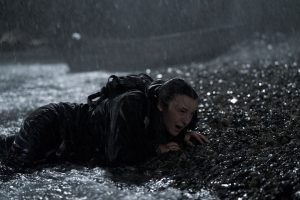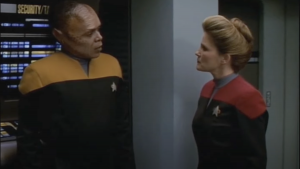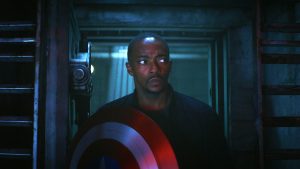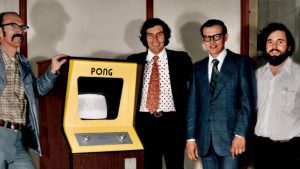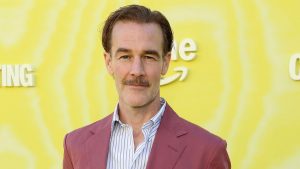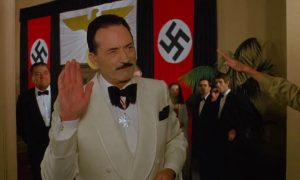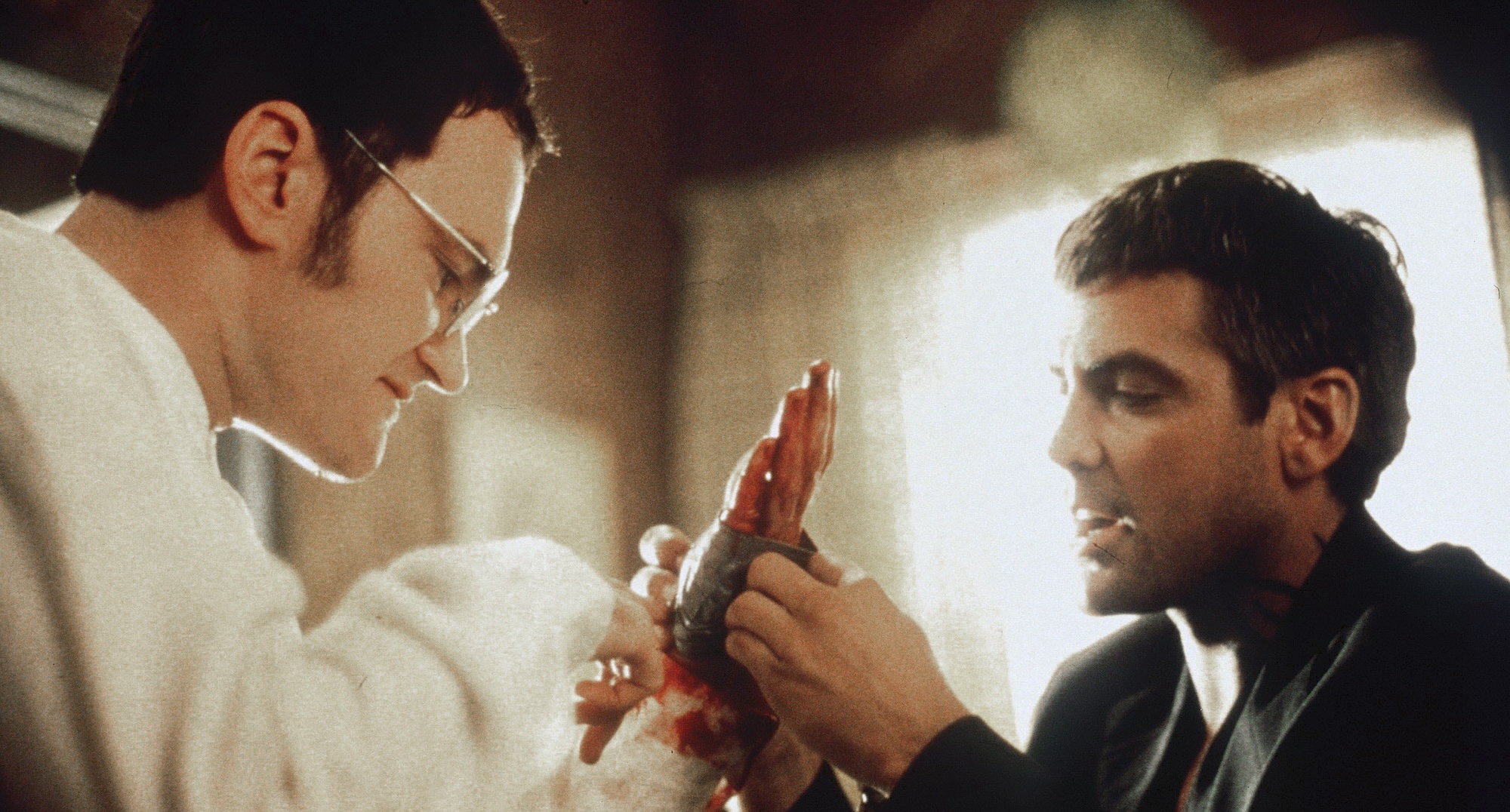
They might have played brothers almost 30 years ago on the set of From Dusk Till Dawn, but it’s fair to say the sun has gone down on George Clooney and Quentin Tarantino’s camaraderie. Clooney’s shots across Tarantino’s bow are making the rounds, too, after the actor sat down with his frequent co-star Brad Pitt for a GQ cover story interview.
During the careers-spanning conversation, the subject of actors and auteurs came up, including how each leading man has enjoyed long-lasting relationships with some of the greatest auteurs of their generation. For Clooney that can include Steven Soderbergh and the Coen Brothers, while for Pitt it immediately brings to mind David Fincher and Quentin Tarantino. QT has indeed used Pitt in two of his best films, Inglourious Basterds and Once Upon a Time… in Hollywood. Yet it was while GQ brought up that latter union that Clooney revealed he’s recently been frustrated by comments apparently made by Tarantino.
“Listen, I did a movie with Quentin,” Clooney pointed out. “He played my brother.” When Pitt remembered that and said he thought Tarantino was “pretty good” in the film, Clooney elaborated: “He was okay in it.”
Clooney eventually aired his full grievance: “Quentin said some shit about me recently, so I’m a little irritated by him. He did some interview where he was naming movie stars, and he was talking about you and somebody else, and then this guy goes, ‘Well, what about George?’ He goes, ‘He’s not a movie star.’ And then he literally said something like, ‘Name me a movie since the millennium.’ And I was like, ‘Since the millennium?’ That’s kind of my whole fucking career. So now I’m like, all right dude, fuck off. I don’t mind giving him shit. He gave me shit.”
Depending on your point-of-view, it’s either amusing or a real shame to see two of the biggest Gen-X talents in Hollywood spat like this. Perhaps it’s not a surprise, though, given just a year ago Clooney not-so-affectionately recalled with a pretty dead-on Tarantino impression an interview they did for From Dusk Till Dawn where Tarantino claimed he and Clooney genuinely looked like brothers.
As of press time, we were not able to find the interview Clooney is referring to in regards to Tarantino “giving him shit” about movie star bonafides. However, the success and trajectory of careers, both among actors and directors, is obviously a fixation for Tarantino, who mused at length in his first book of film criticism, Cinema Speculation, about the choices made by the likes of Paul Newman, Steve McQueen, and Warren Beatty, which helped define the New Hollywood cinema Tarantino so adores. And of course Tarantino’s obsession with a “clean” 10-film oeuvre is why the director insists his next movie will be his last.
So if Tarantino really dismissed Clooney’s status as a movie star in the 21st century, Clooney has some right to be ticked.
While we wouldn’t draw a wall between “the millennium” and today, it is true that Clooney has generally avoided the kind of sure-bet blockbusters that replenish a movie star’s brand cache since about 2007—the year he starred in his third and final dance with Danny Ocean in Ocean’s Thirteen. However, the most interesting thing about Clooney’s career on a macro level is how he parlayed that relatively late-found celebrity and fame into a rarified movie career where instead of making “one for you and one for them,” Clooney’s spent nearly 20 years making all of them for himself.
To be clear, Clooney’s career goes back well before the 21st century, with his first TV appearance being a walk-on role in the forgotten 1978 miniseries, Centennial. But his status as a movie star A-lister probably wasn’t cemented until around Y2K. Before that Clooney became a bonafide television star and face of NBC’s 1994 fall season when he turned into the breakout on ER at the age of 33.
He quickly parlayed that into some really interesting film work, including as the lead opposite Tarantino in the QT-scripted, but Robert Rodriguez-directed, From Dusk Till Dawn. Still easily the best “grindhouse” movie either filmmaker ever produced, Dusk allowed Clooney to embody the “be cool” ethos of ‘90s era Tarantino chic.
Around the same time, though, Clooney was also saying yes to every project that came his way. And these ran the gamut from interesting like Three Kings (which behind-the-scenes was still a nightmare for Clooney after he got into a physical fisticuff with the film’s volatile and allegedly toxic director, David O. Russell) to… Batman & Robin.
So it might be fair to say Clooney didn’t fully establish himself as a full A-lister until The Perfect Storm in 2000, as pure a star vehicle as there could be in those early days of audiences still being wowed by CGI wonderment. Soon afterward Clooney basically defined what the Gen-X rat pack was alongside Brad Pitt, Matt Damon, Don Cheadle, Casey Affleck, and more in Ocean’s Eleven (2001). The image has stuck since Clooney is still partnering with Pitt on Apple TV+’s upcoming Wolves (hence the GQ interview).
So yes, Clooney’s ascendancy and perhaps peak as a box office draw was in the 2000s, albeit we’d point out it was true throughout the decade and not just “the millennium.” Yet what Tarantino appears to be carelessly ignoring is how adroitly Clooney was able to pivot something as fleeting and momentarily ephemeral as fame into a rich career that has kept Clooney not only at the top of the Hollywood hierarchy, but constantly engaged with interesting and challenging work.
For the record, Clooney again has the auteurs he collaborates with frequently, and we’d argue there have been few as entertainingly fruitful in this century as Clooney’s rapport with the Coen Brothers. Beginning in 2000’s pitch perfect riff on Deep South folklore and tall tales, O Brother, Where Art Thou?, Clooney and the Coens have so enjoyed developing what they christened their “trilogy of idiots” between O Brother, Intolerable Cruelty (2003), and Burn After Reading (2007) that they went ahead and added a fourth part to this triumvirate in the severely underrated Hail, Caesar! (2016).
Beyond that, Clooney used his immediate hard power and bankability in the 2000s to pursue the type of serious, adult-oriented dramas one imagines Tarantino might appreciate still getting made in Hollywood, even if he might have his own views on the specific films. Tony Gilroy’s Michael Clayton continues to grow in esteem as a newfound classic—unfortunately because its cynicism about late stage American capitalism has become a reality. Meanwhile The Descendants (2011) is one of Alexander Payne’s tenderest and funniest films which won Jim Rash and Nat Faxon screenplay Oscars; and of course alongside Sandra Bullock, Clooney lending his movie star status to Alfonso Cuarón helped get the risky and artful high-concept Gravity (2013) off the ground.
Clooney has also shown a lot more interest in his own directorial career over the last 20 or so years. Admittedly, we’d argue his only true great film behind the camera was curiously his second: 2005’s Good Night, and Good Luck. It certainly has aged better than the movie that beat it for Best Picture that year (Crash). But despite the rather disappointing results from his subsequent directorial efforts, including The Ides of March, The Monuments Men, The Midnight Sky, and The Boys in the Boat, the fact remains Clooney is using his clout and stardom to get adult-skewing dramas that otherwise would be ignored greenlit.
The fascinating thing about Clooney’s career isn’t the number of box office hits he’s produced or even necessarily how many classics he appeared in. It’s that he was able to claim conventional stardom in his middle-age with a salt-and-pepper Cary Grant charisma and then cleverly curate that into a career by making only the films he’s personally interested in. We admit that the best in the last decade are when someone else is directing, but Clooney has remained a “kingmaker,” both in Hollywood and apparently beyond it, while eschewing the type of franchise/blockbuster compromises many of his contemporaries have had to settle for.
Other than a self-deprecating cameo in last year’s The Flash, he’s avoided the rise of superhero movies and legacy sequels, not even showing up when they dusted off his own IP with Ocean Eight (2018). Unlike Tom Cruise, he isn’t reinventing himself by doing increasingly insane stunts with characters he created decades earlier, nor is he “passing the baton” by showing up for a ton of blue screen work.
He’s managed to keep the kind New Hollywood career the likes of Tarantino admire in an era where Hollywood belongs to the capes. That’s some movie star shit if you ask us.
The post George Clooney May Be Right to Be Annoyed with Quentin Tarantino appeared first on Den of Geek.


